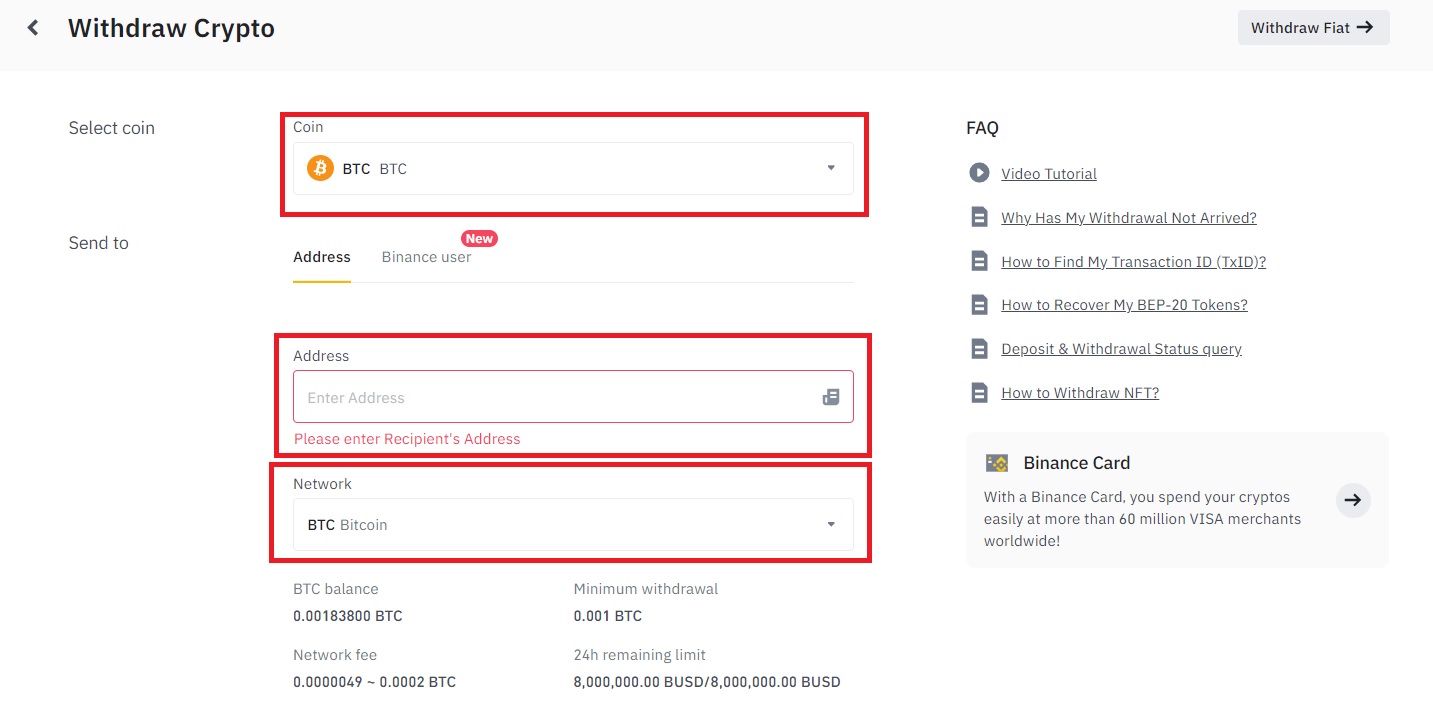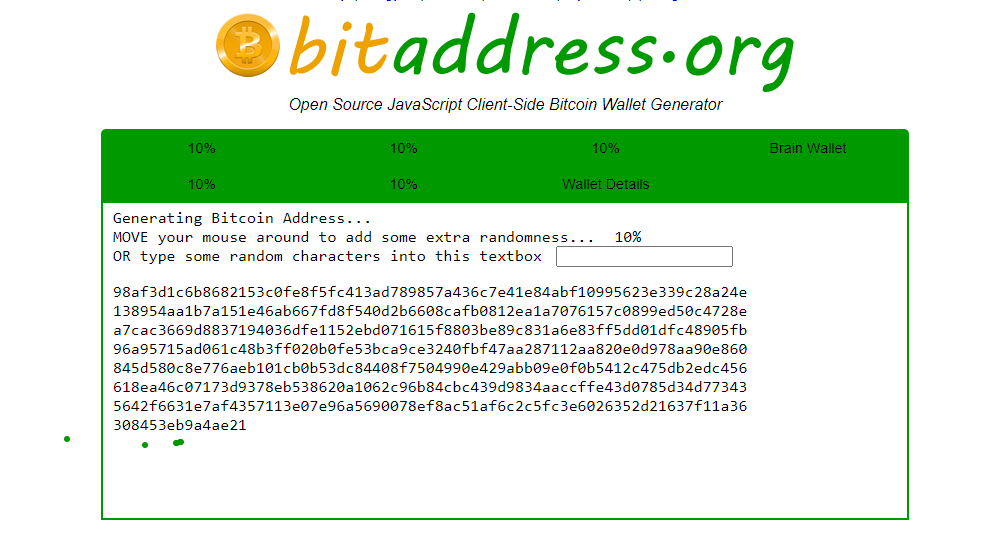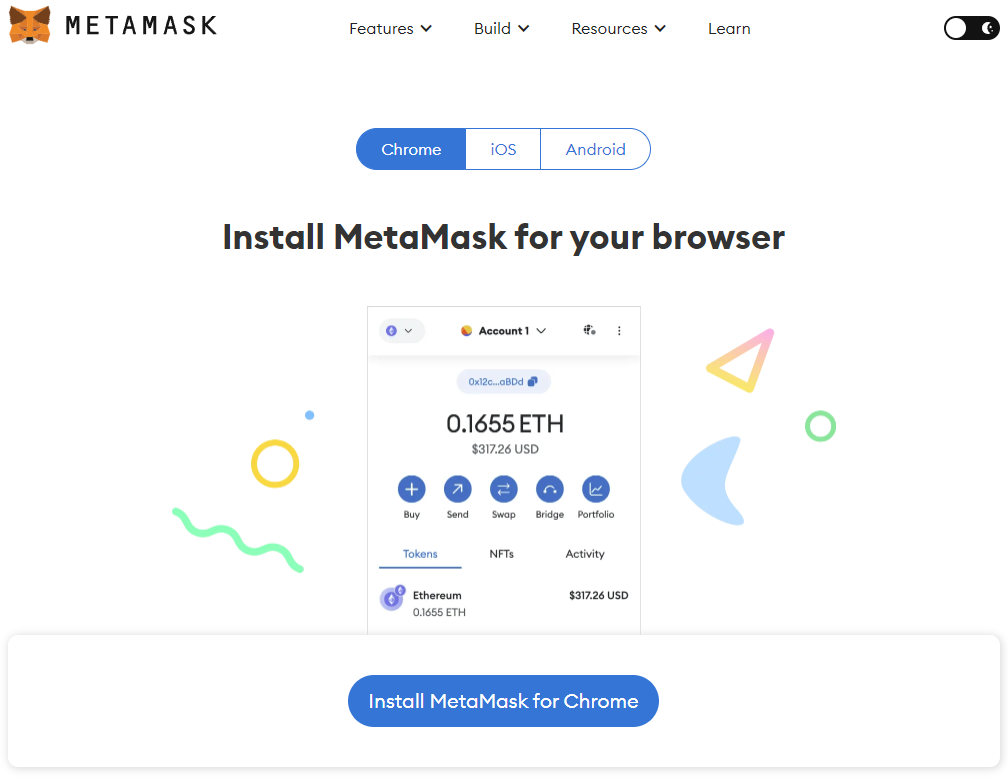9 Ways You Can Give Crypto as a Gift
Digital currencies can serve a range of purposes, including being given as a gift. Gifting someone crypto has never been easier as we explain.
Hedge With Crypto aims to publish information that is factual and accurate as of the date of publication. For specific information about a cryptocurrency exchange or trading platform please visit that provider’s website. This information is general in nature and is for educational purposes only. Hedge With Crypto does not provide financial advice nor does it take into account your personal financial situation. We encourage you to seek financial advice from an independent financial advisor where appropriate and make your own inquiries.
Key takeaways:
- Gifting cryptocurrency can be accomplished quickly and easily with more than five different methods
- The most popular way to gift crypto is via an exchange or by directly transferring with a wallet
- Crypto gifts can incur a taxable event – but only at the time of disposal
- When gifting cryptocurrency, always double-check the recipient’s wallet address and the network used to transact the coin/token
TABLE OF CONTENTS
Cryptocurrency’s rise over the past decade has made it a viable gifting option for a range of purposes. A family might wish to gift their child some crypto as an early investment, while others may just want to tip strangers on the internet for helping them out. This guide will walk through the easiest and most popular ways to gift cryptocurrency, no matter what the gift is being used for.
How To Give Cryptocurrency As A Gift
- Transfer crypto through an exchange. Using centralized exchanges like Binance and Coinbase is a popular and easy way to gift crypto.
- Use a peer-to-peer exchange to gift crypto. P2P exchanges can be accessed through larger platforms (like Binance and PayPal) and are a more direct method of transferring crypto.
- Send a gift card to convert into crypto. Multiple services offer crypto gift cards that can be redeemed directly into a digital asset wallet.
- Use a crypto gifting service. Platforms like Robinhood and EarlyBird Crypto offer gifting services that will transact Bitcoin and other assets on someone else’s behalf.
- Print a paper wallet. A paper wallet can be created, printed out, and then used to send and receive crypto.
- Gift crypto with a software wallet. Wallets like MetaMask, TrustWallet and Exodus can be used to quickly send supported cryptocurrencies.
- Gift crypto on a hardware wallet. Secure hardware wallets like Ledger Nano X can be used to send 1,000+ cryptocurrencies to other addresses.
- Purchase and gift an NFT. An NFT is a virtual asset that can be gifted the same way one would transfer crypto.
- Gift Bitcoin with physical coins. Physical Bitcoins and other cryptocurrencies can be gifted as a novel starting point to the blockchain world.
Methods To Gift Crypto Compared
| Gifting method | Cost/fees | Difficulty | Platforms available |
|---|---|---|---|
| Crypto exchange | Usually around 1% per fiat transaction and a fluctuating rate per crypto transaction | Easy | 100+, including Binance, Coinbase, Kraken, Swyftx, ByBit etc. |
| P2P exchange | Usually less than 1% | Medium | Binance P2P, PayPal, Kucoin P2P, OKX P2P, LocalCoinSwap and 50+ |
| Gift card | Usually free or very cheap | Easy | Binance Gift Card, CoinGate, BitRefill, BitPay and 20+ |
| Gifting service | Varies from cheap to a little expensive | Very easy | Very limited availability. Robinhood and EarlyBird are two of very few supported platforms |
| Paper wallet | Free to create, low crypto transaction costs | Medium | Any supported wallet key generator will work, such as BitAddress |
| Software wallet | Free to create, low crypto transaction costs | Medium | MetaMask, Exodus Wallet, Trust Wallet and 100+ |
| Hardware wallet | Expensive | Hard | Ledger Nano, Trezor |
| Gift an NFT | Depends on the NFT being purchased and which blockchain is used | Easy to medium | OpenSea, Binance, Rarible |
| Physical coins | Can range from a few dollars to hundreds depending on the mint | Easy | Can be hard to source, usually purchased via online marketplaces |
Most Popular Ways To Gift Crypto Explained
1. Gift crypto through an exchange
Centralized exchanges are the most common method of buying, selling, and transferring digital currencies. One of the most popular crypto exchanges such as Binance boasts billions in 24-hour trading volume. The majority of centralized exchanges come with a native hot wallet, meaning people can gift others crypto immediately after buying it.

Using a centralized exchange to gift crypto is quite easy. Investors starting from scratch will need to pass identity verification, deposit fiat currency, and use the deposited cash to buy the desired cryptocurrency. From there, most exchanges will allow the crypto to be immediately gifted by sending the crypto to another wallet address. The fees for buying and then transacting crypto will vary but are usually quite low (1% or less).
If the gift is for a young family member without a wallet address, the investor will have to create one using software such as Trust Wallet, complicating things a little. The gifter could also share their exchange account with the recipient, but this can bring up some privacy issues. That said, sending crypto through a reputable exchange provides people with the best blend of security, convenience, low fees, and versatility.
2. Use a P2P exchange to gift crypto
Common P2P platforms like Binance, Paxful, and KuCoin let customers create custom advertisements (for either buying or selling crypto) that other users can respond to. A gifter could theoretically create a listing for “free” crypto and then only accept trades with the desired recipient. However, this is rather convoluted, and using a normal exchange would make more sense.
P2P payment providers, on the other hand, offer an easy and fast way to gift cryptocurrency. PayPal, the world’s leading payment gateway, allows users to send certain crypto (such as BTC, ETH, LTC, and BCH) to other PayPal users. However, those using this method will usually need to link a virtual wallet address to their accounts to complete gift transactions.
Additionally, users are paying up for convenience – PayPal, CashApp, and other P2P payment solutions are far more expensive than using a crypto wallet or centralized exchange. On top of this, crypto P2P payments are often region-locked and only available to customers in certain nations.
3. Send a crypto gift card
Several cryptocurrency exchanges and platforms offer a gift card service. Crypto gift cards work exactly as one would expect them to – the gifter can load them up with a supported digital currency and send them to the desired recipient. For example, Binance allows customers to create gift cards for seven different tokens – BTC, DOGE, BUSD, BNB, ETH SHIB, and USDT. Most gift cards can be paid for via fiat currency (eg. USD, GBP, AUD) and then converted to crypto upon being placed in a wallet.

For this gifting method to work, the card recipient will need a digital wallet, either through an exchange or third-party software. This way, they can quickly redeem the card and store the digital assets securely. Alternatively, some gift cards just have a fiat value attached that lets the recipient invest in any supported crypto of equal value. For example, a USD 100 crypto gift card could be converted into a certain amount of ETH, or XRP.
Overall, crypto gift cards are one of the easiest and fastest methods of gifting digital currencies to friends or family. The biggest caveat is that some sites offering these cards aren’t legitimate – always make sure to research the exchange/platform before giving them financial details.
4. Use a crypto gifting service
There aren’t many crypto gifting services on the market, but as the sector has grown in popularity a few viable options have popped up. A crypto gifting service is very similar to using a gift card, or even an exchange, except they tend to have a more personal touch. The gifter will need to decide how much of a certain crypto they wish to gift, set up a digital wallet/exchange account (if required) and then they can let the service go to work.
The two major platforms to look out for here are Robinhood and EarlyBird. Robinhood’s Crypto Gifting Program allows customers to send digital currencies to other accounts on the platform completely commission-free. That makes the service one of the most cost-effective methods of gifting cryptocurrency.
EarlyBird is similarly cheap and supports the creation of a custodial account specifically for minors – making it perfect for those wishing to gift crypto to children. The biggest downside of using a crypto gifting service is the lack of options on the market. For example, the available platforms may not support certain digital assets for gifting.
5. Print a paper wallet
Printing a paper wallet and storing crypto on it is slowly becoming a more and more outdated method of securely holding digital assets – but it is still a viable option. Investors can generate one-time wallet addresses via a website like BitAddress or WalletGenerator. The address will include two keys – a public and a private key. The gifter then just has to load up those keys with crypto via an exchange or software wallet.

The advantage of a paper wallet is its simplicity and personal nature – it’s a tangible object that can be handed to the recipient, compared to other solutions which are mostly digital. It’s also very cheap, as it costs hardly anything to generate a key and print a piece of paper. However, paper wallets can be a little confusing for less-experienced investors and aren’t very secure.
6. Gift crypto with a software wallet
Gifting crypto with a software wallet follows the same method as using a paper wallet – except everything is done digitally. There are now hundreds of viable cryptocurrency wallets with cutting-edge security measures, including ZenGo, MetaMask, Exodus Wallet, Trust Wallet, and many more.
There are a couple of ways a gifter could go about this. The easiest option for gifting a child or somebody without any digital investments is to download, install, and create an account on wallet software. Then, using an exchange (some software wallets come with the option to buy crypto in-built) transfer digital assets to the wallet. Finally, the gifter can hand over the wallet to the recipient by providing them with the account password or seed phrase.

Alternatively, if the gift recipient is crypto-savvy and already owns a wallet, the process is much simpler. Just load up a wallet with the crypto of choice and send it to the recipient’s public wallet address. No matter which method is chosen, the costs are quite low. The majority of wallet software is 100% free, and the only expenses that will be incurred are network transaction fees, which vary but are usually minor. Using a software wallet to gift crypto isn’t the easiest method on this list, but it is a secure, cheap, and fast option.
7. Gift crypto on a hardware wallet
Gifting crypto with a hardware wallet might just be the most expensive option on this list – but that makes it perfect for gifting large amounts of crypto. Hardware wallets are considered the safest way to store crypto and come with the bonus of being wrappable. The two most popular hardware wallet brands are Ledger and Trezor – but expect to be paying $79-150+ to purchase either.
The process of loading a hardware wallet can be a little complex. For starters, the dongle has to be connected to a computer via USB cable, Wi-Fi, or Bluetooth before any crypto can be accessed. Some hardware wallets will allow users to buy crypto directly from the wallet’s interface, whereas others will need digital assets to be transferred from an exchange. Just like with a software wallet, the gifter needs to take note of the seed phrase so the recipient can access their hardware wallet’s funds. Buying a metal seed phrase recovery wallet is a good option.

8. Purchase and gift an NFT
A unique option for gifting “crypto” is to gift a digital collectible instead. The popularity of NFTs has cooled since they burst onto the scene in the early 2020s, but they are still a huge part of the blockchain and its future. Whereas digital currencies can be faceless investments, NFTs are often associated with a graphic, audio file, or other piece of media. That means gifters can tailor the NFT toward the recipient’s interests.
Buying an NFT is pretty easy and follows the same process as using a crypto exchange to gift digital currencies. There are several NFT marketplaces like OpenSea that have millions of digital collectibles available for purchase – although it’s worth noting the gifter will likely need an Ethereum software wallet pre-loaded with Ethers. Once the NFT is purchased, it can either be stored on the exchange or transferred to a supported software/hardware wallet that can then be gifted to the recipient.
The costs of an NFT will vary wildly from a few bucks to hundreds of thousands, so gifters can spend as much as they want on this option.
9. Gift Bitcoin with physical coins
As Bitcoin surged in popularity, many pundits believed that creating a physical version of the asset would increase adoption. The idea was to create a metal coin that represented the value of one BTC. Of course, when the price of Bitcoin soared to well over $1k the concept was dead in the water due to the lack of security – but not before hundreds of the Casascius branded coins were circulated. Each coin was branded with a private key that provided access to its equivalent amount of BTC.
Finding a physical Casascius coin can be a little difficult now as they are rather rare and expensive (for example, the cheapest we could find on eBay was over $1,000). They are known for being insecure – it’s pretty risky to store thousands of dollars on a single coin. However, they are a pretty cool, albeit gimmicky, gifting option for those who want to hand over something physical while still helping someone set up a crypto portfolio.
Alternatively, there are Bitcoin commemorative coins that don’t have any peg to the actual asset. These are worthless in terms of BTC but can be picked up for $10-20 as a cheap alternative to Casascius coins.
Tips For Gifting Cryptocurrencies Like Bitcoin
- Whenever using a wallet address or public/private keys, always double-check the recipient’s address. These strings of numbers and letters are long and confusing and it’s easy to make a mistake when copying them out. If crypto is gifted to the wrong wallet address, it is likely lost forever.
- Similarly, always double-check the network the crypto is being sent along. For example, sending MATIC via the Bitcoin blockchain will most likely result in the loss of all MATIC.
- Especially when gifting crypto to young people, sticking with top, reputable coins like Bitcoin and Ethereum is a safer long-term option.
- Doing everything on one crypto platform will save the gifter money on transfer and network fees. For example, the crypto exchange Binance supports multiple different gifting options (exchange, P2P, gift cards) which can make it a great choice for most people.
- A hardware wallet is a great option for those willing to spend and research a bit more than other methods. They are the most secure way of storing cryptocurrency and also provide the gifter with a physical object that can be wrapped. However, they can be expensive and a little more difficult to get started with.
How Are Cryptocurrency Gifts Taxed?
Crypto gifts are taxed just like any other asset. The recipient doesn’t have to pay a dime in tax during the initial gifting transaction. On the gifter’s side, things are a little more complex. In certain nations there is a monetary allowance for gifts up to $15,000 – so if less than this is gifted in a financial year, the gifter doesn’t have to worry about paying tax. However, in some locations, if they gift an asset they’ve “profited” on – even if they are giving it away for free – they may still incur a capital gain tax.
On the recipient’s side, a taxable event will occur if they end up disposing of the crypto in pretty much any way. This includes selling the asset to fiat, converting it to another cryptocurrency, gifting it to a friend, and so on. In some jurisdictions, this will result in a Capital Gains Tax, where a percentage of the realized profit has to be paid off. In others, crypto disposal will count as income tax, where the profits are taxed at the individual’s nominal tax rate.
Frequently Asked Questions
Is it safe to send crypto gifts?
Yes, it is safe to send crypto gifts when using a reputable platform. There are hundreds of legitimate options to securely send digital currencies, including exchanges such as Binance, wallets like Trezor, and services like EarlyBird.
How to transfer crypto to a child as a gift?
There are no real regulations against child ownership of cryptocurrency, which means a child can be gifted digital assets the same way anyone else would. A good idea is for the parents to treat a software wallet as a savings account, and continue making contributions until their child reaches financial maturity. Then, the transfer is as simple as giving the child the wallet’s seed phrase. Buying crypto under the age of 18 is more difficult, therefore, giving it as a gift is a better alternative.
Is it legal to gift crypto?
Yes, in the majority of countries, it is legal to gift crypto. The only exceptions may be governments that have banned Bitcoin including the acquisition and sale of it among other virtual currencies.
Are there privacy issues with receiving crypto gifts?
If a secure gifting method is chosen, there should be minimal privacy issues with sending and receiving crypto gifts. For example, using a new hardware or software wallet is considered quite safe. However, paper wallets and physical coins may pose some privacy issues if they are misplaced.